Psychology is the scientific study of mind and behavior. Its subject matter includes the behavior of humans and nonhumans, both conscious and unconscious phenomena, and mental processes such as thoughts, feelings, and motives. Psychology is an academic discipline of immense scope, crossing the boundaries between the natural and social sciences. Biological psychologists seek an understanding of the emergent properties of brains, linking the discipline to neuroscience. As social scientists, psychologists aim to understand the behavior of individuals and groups.
Psychohistory is an amalgam of psychology, history, and related social sciences and the humanities. Its proponents claim to examine the "why" of history, especially the difference between stated intention and actual behavior. It works to combine the insights of psychology, especially psychoanalysis, with the research methodology of the social sciences and humanities to understand the emotional origin of the behavior of individuals, groups and nations, past and present. Work in the field has been done in the areas of childhood, creativity, dreams, family dynamics, overcoming adversity, personality, political and presidential psychobiography. There are major psychohistorical studies of anthropology, art, ethnology, history, politics and political science, and much else.
In psychoanalysis and other psychological theories, the unconscious mind is the part of the psyche that is not available to introspection. Although these processes exist beneath the surface of conscious awareness, they are thought to exert an effect on conscious thought processes and behavior. Empirical evidence suggests that unconscious phenomena include repressed feelings and desires, memories, automatic skills, subliminal perceptions, and automatic reactions. The term was coined by the 18th-century German Romantic philosopher Friedrich Schelling and later introduced into English by the poet and essayist Samuel Taylor Coleridge.
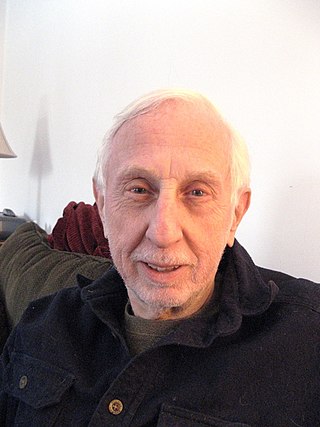
Lloyd deMause was an American lay psychoanalyst and social historian, best known for his pioneering work in the field of psychohistory.
Early infanticidal childrearing is a term used in the study of psychohistory that refers to infanticide in paleolithic, pre-historical, and historical hunter-gatherer tribes or societies. "Early" means early in history or in the cultural development of a society, not to the age of the child. "Infanticidal" refers to the high incidence of infants killed when compared to modern nations. The model was developed by Lloyd deMause within the framework of psychohistory as part of a seven-stage sequence of childrearing modes that describe the development attitudes towards children in human cultures The word "early" distinguishes the term from late infanticidal childrearing, identified by deMause in the more established, agricultural cultures up to the ancient world.
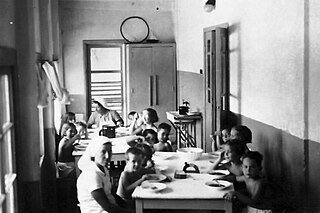
The Westermarck effect, also known as reverse sexual imprinting, is a psychological hypothesis that states that people tend not to be attracted to peers with whom they lived like siblings before the age of six. This hypothesis was first proposed by Finnish anthropologist Edvard Westermarck in his book The History of Human Marriage (1891) as one explanation for the incest taboo.
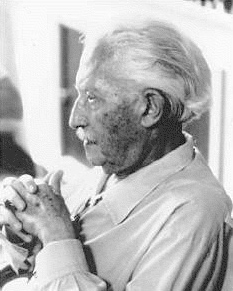
Erik Homburger Erikson was an American child psychoanalyst known for his theory on psychosocial development of human beings. He coined the phrase identity crisis.
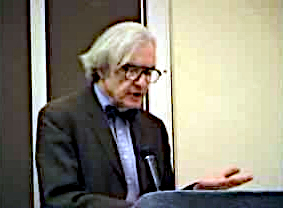
Robert Jay Lifton is an American psychiatrist and author, chiefly known for his studies of the psychological causes and effects of wars and political violence, and for his theory of thought reform. He was an early proponent of the techniques of psychohistory.
Prenatal psychology can be seen as a part of developmental psychology, although historically it was developed in the heterogenous field of psychoanalysis. Its scope is the description and explanation of experience and behaviour of the individual before birth and postnatal consequences as well. In so far as the actual birth process is involved one can consider this perinatal psychology. Pre- and perinatal aspects are often discussed together.

Robert Joseph Plomin is an American/British psychologist and geneticist best known for his work in twin studies and behavior genetics. A Review of General Psychology survey, published in 2002, ranked Plomin as the 71st most cited psychologist of the 20th century. He is the author of several books on genetics and psychology.

Hubert J.M. Hermans is a Dutch psychologist and Emeritus Professor at the Radboud University of Nijmegen, internationally known as the creator of dialogical self theory.
Religious abuse is abuse administered through religion, including harassment or humiliation that may result in psychological trauma. Religious abuse may also include the misuse of religion for selfish, secular, or ideological ends, such as the abuse of a clerical position.
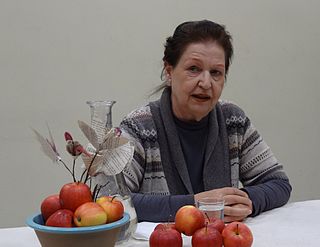
Alenka Puhar is a Slovenian journalist, author, translator, and historian. In 1982, she wrote a groundbreaking psychohistory-inspired book "The Primal Text of Life" about the 19th century social history of early childhood in Slovene Lands, then part of the Austro-Hungarian Empire. The book was in 2010 the subject of a television documentary that was in 2010 televised on the national RTV Slovenija. Her grandfather was the photographer and inventor Janez Puhar, who invented a process for photography on glass.
The Society for Occupational Health Psychology (SOHP) is the first organization in the United States to be devoted to occupational health psychology. It is dedicated to the application of scientific knowledge for the purpose of improving worker health and well-being.
Peter J. Loewenberg is an American historian and psychoanalyst, professor of "European cultural, intellectual, German, Austrian and Swiss history, political Psychology, integrating the identities of an historian and political psychologist with the clinical practice of psychoanalysis" at UCLA.
Katherine Nelson was an American developmental psychologist, and professor.
Darcia Narvaez is a Professor of Psychology Emerita at the University of Notre Dame who has written extensively on issues of character, moral development, and human flourishing.
Psychological Studies is a quarterly peer-reviewed academic journal published by Springer Science+Business Media. It is the official journal of the Indian National Academy of Psychology. The editor-in-chief is Purnima Singh. The special issue editor is Girishwar Misra, who served as the editor-in-chief for 15 years through the end of 2015.
Clio’s Psyche: Understanding the “Why” of Culture, Current Events, History, and Society: is an academic journal established in 1994 by the Psychohistory Forum (1982–) to further interdisciplinary knowledge of society and history utilizing the tools of applied psychoanalysis, political psychology, psychobiography, psychohistory, and related disciplines. It is part of the innovative field of psychohistory and it was created by the members of the Forum to both keep a record of the scholarship the psychohistory forum was nurturing. Initially, it started as a newsletter and before long became a full length, double-blind refereed journal, one of several in the field. Its website is at cliospsyche.org. and issues a year or more old may be found there along with a listing of all interviews, issues, and memorials.
The International Psychohistorical Association was founded in 1977 in New York by Lloyd deMause, to focus on psychohistory as a science. He was also its first president. The organization publishes Psychohistory News.







